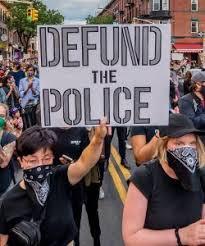 Why do liberals try so hard to appear crazy? Could have said “All Lives Matter” or “Black Lives Matter Too.” But making it just “Black Lives Matter” invites the pushback it gets from the right, an unnecessary argument. “Abolish ICE” invites accusations of wanting “open borders.” Now it’s “Defund the Police.” Inviting Trump’s saying: See how crazy these people are? Like, we don’t need police? He’d love for the election to be a referendum on that. Ammunition for his “law and order” shtick.
Why do liberals try so hard to appear crazy? Could have said “All Lives Matter” or “Black Lives Matter Too.” But making it just “Black Lives Matter” invites the pushback it gets from the right, an unnecessary argument. “Abolish ICE” invites accusations of wanting “open borders.” Now it’s “Defund the Police.” Inviting Trump’s saying: See how crazy these people are? Like, we don’t need police? He’d love for the election to be a referendum on that. Ammunition for his “law and order” shtick.
Let’s be clear. Ill-conceived slogans notwithstanding, nobody advocates eliminating policing.
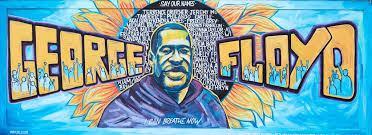
Looting and burning must not be justified as some sort of legitimate expression of rage against injustice. More stupid rhetoric. Nobody who smashed a window to steal stuff was doing it for George Floyd. Linking the looting with the protests is just what Trump wants.
Law and order is a two way street. It does apply to citizens; but also to cops (as in Minneapolis) and other public authorities. Last week Trump ordered a violent militarized assault on peaceful protesters and journalists near the White House, including helicopters intentionally flying so low the impact of the whirling rotors injured people and damaged property.
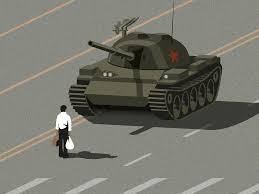
Lafayette Square was not a one-off. Recent days have seen repeated videos of protests against police brutality being met with — vicious police brutality. (Like the old guy knocked to the pavement in Buffalo, which Trump defended with some deranged conspiracy theory.) It’s again not protesters violating law and order, it’s out-of-control violent police.
Rather than the (really dumb) slogan “Defund the Police,” it should be something like “Re-set the Police.” Or even “Law and order for police.” Recognizing there’s much wrong with our policing that needs change.
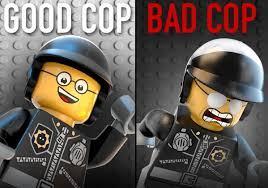
And we’ve aggravated that problem by militarizing the police. There’s even a Defense Department program to give them military kit. (Obama cut it back; Trump reversed that.) Now police commonly have stuff like armored personnel carriers and grenade launchers. Too many policemen see themselves as occupying forces rather than community servants.
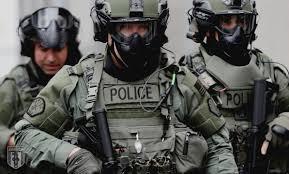
As Hobbes elucidated, we have government most basically to protect us from harm. But that takes governmental power, from which we also need protection. By making that power accountable to us. And there’s no more immediate a need for such accountability than when it comes to the police — whose power over us is exemplified by George Floyd’s story. But such accountability is distinctly lacking.
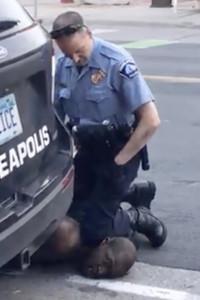
The lack of police accountability is very much institutionalized. Many police unions have negotiated contracts that stymie any citizen complaints and keep cases hidden. Floyd’s killer had skated through seventeen previous charges of misconduct. New York is currently wrestling over a section of law, 50-a, that’s been read to bar public disclosure of police disciplinary proceedings.
Of course we still have constitutional rights. Like the Fourth Amendment’s prohibiting “unreasonable searches and seizures.” But courts have made this virtually a dead letter, allowing police to confiscate property on mere suspicion of criminality, no proof needed. Police departments have exploited this, using such confiscations to pad their budgets — helping to acquire the military style equipment mentioned.
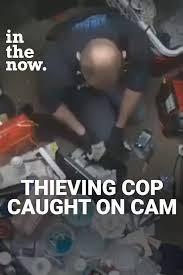
Yes, we need police to deal with lawbreaking (other than their own). But we give policemen a far larger societal role than that, making them ubiquitous trouble-shooters. Providing security in schools, monitoring the polls in elections, directing traffic, dealing with accidents, with the homeless, responding to people’s mental health crises, domestic disputes, drug problems, etc. The Economist quotes Alex Vitale, a professor and “defunding” advocate: “Policing is about use of force. It should be a last resort . . . We don’t want another meeting with police. We want them out of our lives.”
A lot of those functions we give police would be better assigned to non-uniformed — and non-armed — specialist civil servants, trained for all those tasks (which the police in fact mostly are not). Such mission reconfiguration is what “defund” really seeks. And Camden, NJ, is an example showing how to do it. They abolished their police department and built a new and different one from scratch. In a radio interview, their former police chief explained that Camden had one of the nation’s worst crime problems. Cops were doing the standard things, and it wasn’t working. Lots of arrests only made way for more crime while exacerbating the victimization of local residents. He said the police were operating like an alien force with no legitimacy, lacking the people’s consent. The new and different approach proved far more effective. Crimes dropped dramatically, and a far higher percentage were solved, because the population started cooperating with the police instead of seeing them as enemies.

Such rules might include, say, do not keep your knee on the neck of a man in handcuffs on the ground until he’s dead.
